Have you ever wondered what your zucchini fortune could be? Imagine having an abundant supply of these amazing vegetables that not only offer great health benefits but also add a delicious touch to your meals. People are often curious about how much zucchini a single plant can produce, and this captivating blog post will delve into the fascinating world of zucchini production.
Throughout the season, a well-nurtured zucchini plant has the potential to bring forth bountiful harvests. From the moment you plant the seed to the time you enjoy the first harvest, you’ll witness the plant’s growth and marvel at its ability to bear an impressive number of zucchinis. This blog post will explore the factors that contribute to the plant’s productivity, such as proper watering, adequate sunlight, and nutrient-rich soil.
Health benefits of zucchinis
Zucchinis are a great source of key nutrients, including Vitamins A and C. They also contain fiber, magnesium, potassium, folate, and iron. Eating zucchini can provide several health benefits due to its nutrient content:
- Improved vision: Vitamin A is essential for maintaining healthy eyesight, and zucchini is an excellent source of this nutrient.
- Reduced inflammation: Vitamin C helps protect against cell damage caused by free radicals, which can help reduce inflammation in the body.
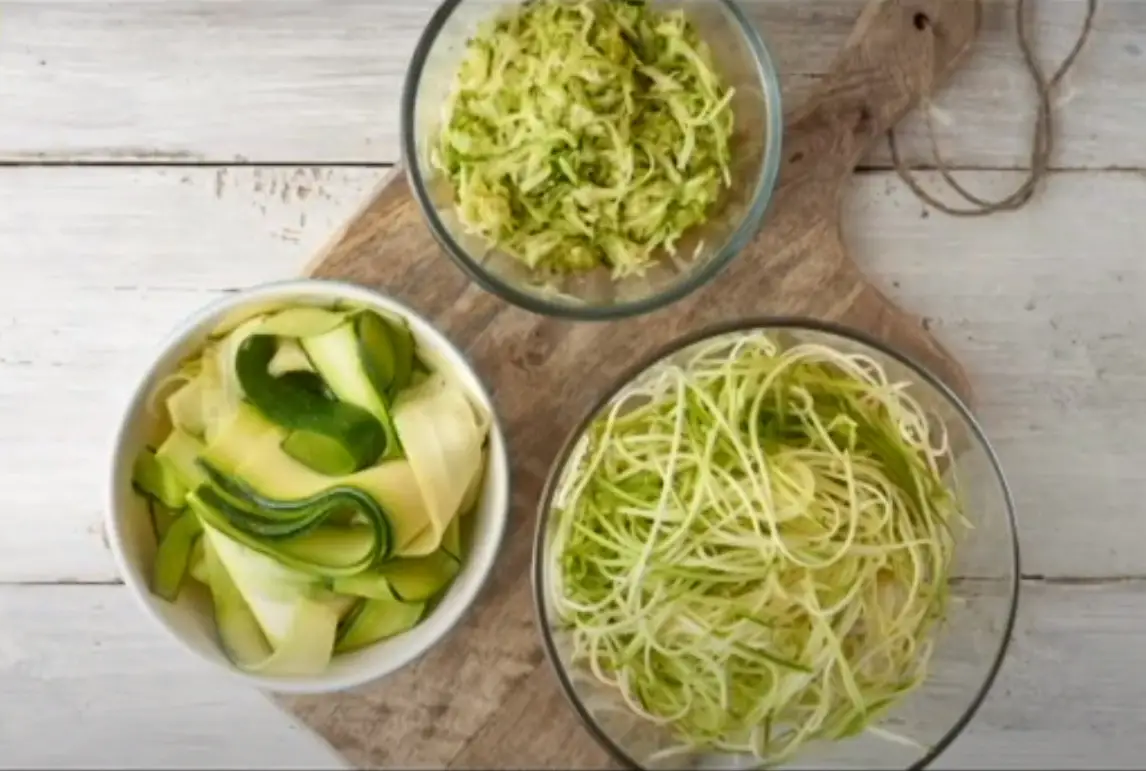
- Improved digestion: Zucchini is a good source of dietary fiber, which can help keep your digestive system functioning properly. Fiber also helps to maintain healthy gut bacteria levels and can reduce constipation and other digestive issues.
- Stronger bones: Zucchini contains magnesium and potassium, which are both important for bone health and growth. Eating zucchini can help to strengthen your bones and reduce the risk of osteoporosis.
- Healthy heart: Potassium helps to regulate blood pressure, while folate helps to reduce levels of homocysteine, a compound that can increase the risk of heart disease. Eating zucchini can help to keep your heart healthy and reduce your risk of cardiovascular diseases.
- Improved energy levels: Zucchini contains iron, which helps to oxygenate the blood and boosts energy levels. This is especially beneficial for people who are anemic or suffer from fatigue due to low iron levels.
Which zucchini is most productive?
The type of zucchini that is most productive depends on several factors. Generally speaking, the larger the variety of zucchini, the more productive it will be. The classic ‘black beauty’ variety is usually considered to be the most productive and is a popular choice among gardeners. These plants can produce large amounts of fruit over an extended period, making them an ideal choice for home gardeners.
However, some of the smaller varieties of zucchini can also produce a good harvest if grown correctly. The ‘patty pan’ variety is one example of a smaller zucchini that can still yield a good amount of fruit if given the proper care and attention. These plants are often planted in containers, as their smaller size makes them easier to manage.
Overall, when it comes to choosing the most productive type of zucchini for your garden, it is important to consider not only the variety but also the growing conditions that are available in your area. Paying attention to these factors can help ensure that you get a bumper crop of delicious zucchini!
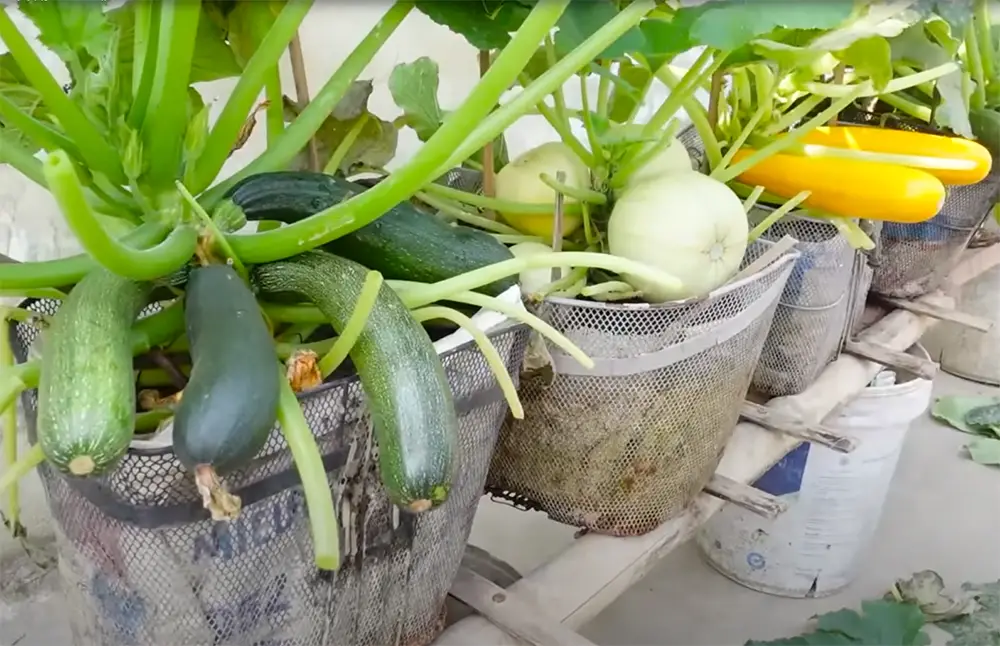
In addition to the varieties of zucchini listed above, several hybrid varieties have been bred for specific traits. For example, some hybrids are designed to be more resistant to frost or disease, while others may produce larger fruit than their traditional counterparts. If you’re looking for a reliable and productive variety of zucchini, exploring these hybrid options can be a great way to maximize your harvest.
Finally, it is important to note that no matter what type of zucchini you choose, proper care and maintenance are essential for achieving the best yields. Regular watering, fertilizing, and pruning will all help ensure the health of your plants and the quality of your harvest!
Will zucchini continue to ripen after picking?
Yes, zucchini will continue to ripen after it is picked from the vine. The ripening process of zucchini involves converting starches into sugars, which continues even after harvest. This means that while the zucchini may feel firm when it is first harvested, it can still become sweeter as time passes. However, this ripening process does not usually last long. Over time, the zucchini will start to spoil and rot, so it is best to use it soon after picking.
To get the most out of your zucchini, you should pick them when they are still young and tender. The skin should be glossy and vibrant in color. If there are any blemishes or bruises, these can be cut away and the rest of the zucchini can still be used. Once harvested, you should store your zucchini in a cool, dry place to slow down the ripening process and keep it fresh for as long as possible.
Finally, it is important to note that some varieties of zucchini will ripen differently than others. Some may have a longer window for ripening than others, so it is best to check the variety before harvesting. Additionally, zucchini can be cooked and frozen for later use if you don’t plan on using them right away. This will help preserve their flavor and texture, making them perfect for enjoying even after picking.
How organic fertilizer can help your zucchini plants
Horse manure
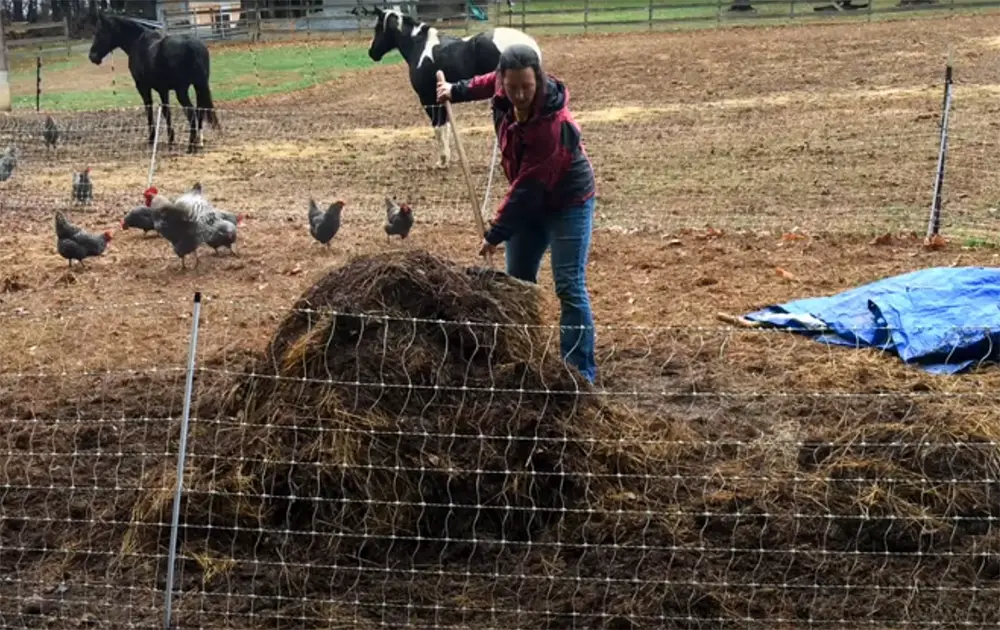
Horse manure is often the preferred choice for organic gardeners looking to give their zucchini plants an extra boost. It adds essential nutrients to the soil, such as nitrogen and phosphorus, while also providing a host of beneficial microorganisms that help break down organic matter in the soil. Horse manure also helps retain moisture in the soil better than other fertilizers, making it ideal for zucchini plants, which need to stay consistently moist.
Sheep manure
Sheep manure is another excellent source of organic fertilizer for zucchini plants. It is especially high in nitrogen, which helps speed up the growth process and make the leaves greener. It also contains potassium, phosphorus, and other trace minerals that are essential for plant health. Sheep manure breaks down slowly over time, so it should be used sparingly to avoid burning your plants.
Green manure
Green manure can be a great option for adding organic matter to your zucchini plants. It is made up of legumes, such as clover or alfalfa, that are grown specifically to be tilled into the soil. Green manure adds nitrogen and other nutrients to the soil, improves its structure, and helps control pests and diseases. It also increases the amount of organic matter in the soil, which will help your zucchini plants to thrive.
Fish manure
Fish manure is another popular choice for zucchini plant fertilization. It is high in nitrogen and other essential minerals, and it helps to improve the soil structure. Fish manure also contains beneficial bacteria that help break down organic matter, which can be beneficial for your zucchini plants. It should be used sparingly, however, as too much of it can cause an unpleasant odor.
Goat manure
Goat manure is an excellent source of organic fertilizer for your zucchini plants. It is packed with essential nutrients, such as nitrogen and phosphorus, while also containing beneficial microorganisms that help break down organic matter in the soil. The slow-release nature of goat manure helps to provide a steady supply of nutrients to your plants over time. Additionally, it helps retain moisture in the soil, which is important for keeping your zucchini plants happy.

Rabbit manure
Rabbit manure can also be an excellent source of organic fertilizer for zucchini plants. It is high in nitrogen, phosphorus, and other essential minerals, while also containing beneficial bacteria that help break down organic matter in the soil. Rabbit manure is relatively easy to find and use, as it tends to be sold in granular form. As with any fertilizer, however, it should be used in moderation to avoid burning your plants.
Chicken manure
Chicken manure is another great organic fertilizer for zucchini plants. It is high in nitrogen and other essential minerals, while also containing beneficial bacteria that help break down organic matter in the soil. The slow-release nature of chicken manure helps to provide steady nutrition over time, making it an ideal choice for zucchini plants. Additionally, it can help retain moisture in the soil, which is essential for keeping your zucchini plants healthy.
Donkey manure
Blood meal
A blood meal is an excellent source of organic fertilizer for zucchini plants, as it is high in nitrogen and other essential nutrients. It also contains beneficial bacteria that help break down organic matter in the soil, making it ideal for zucchini plants. Blood meal should be used sparingly, however, as too much can burn your plants. Additionally, blood meal can attract animals, so it should be used with caution to avoid attracting unwanted pests to your garden [2].
Determinate and indeterminate zucchini plants: What are they?
Determinate and indeterminate zucchini plants refer to the growth habit of the plant. Determinate varieties have a compact, bush-like appearance and produce fruit over a limited period. Indeterminate varieties are vine-like in their growth pattern, producing fruits throughout the growing season.
The type of zucchini plant you choose will depend on the amount of space available and the length of your growing season. Determinate plants are great for small spaces but may produce fewer fruits than indeterminate varieties. If you have a longer growing season or larger space, an indeterminate variety can provide an extended harvest period with higher yields.
In addition to their growth habits, determinate and indeterminate zucchini plants have different levels of disease resistance. The determinate type is more resistant to powdery mildew, while the indeterminate variety is more susceptible to diseases such as squash vine borer and cucumber mosaic virus. In both cases, it’s important to select varieties that are well-suited to your regional climate so you can get the most out of your harvest.
No matter which type you choose, planting zucchini is an easy and rewarding way to add variety to your garden! With the right care and attention, you can enjoy a bountiful harvest of fresh vegetables all season long. Just remember to water regularly, keep an eye on pests, and pick fruits frequently to maximize yields [3].
How can you increase the yield of my zucchini plants?
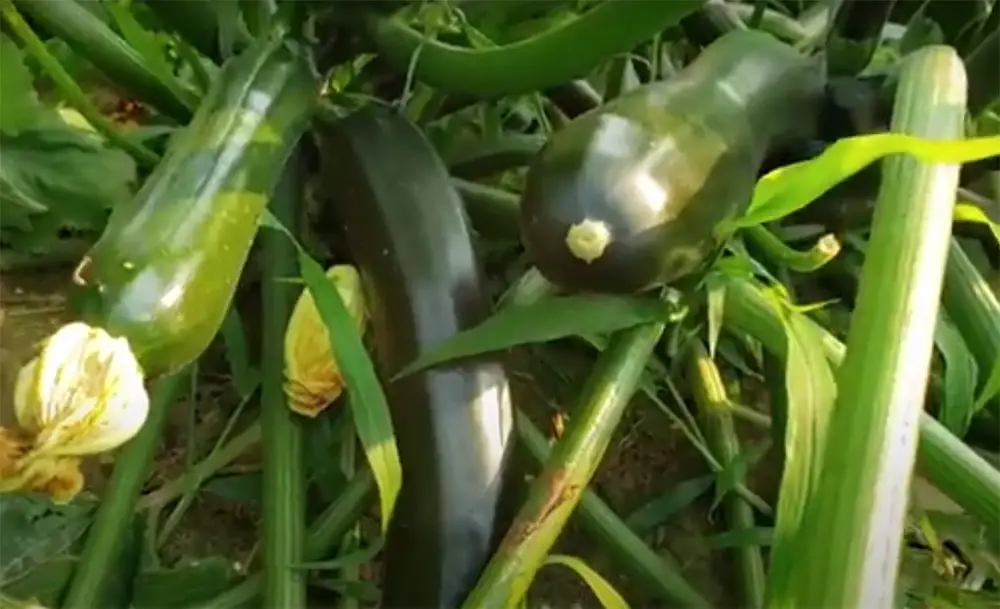
There are several ways to increase the yield of your zucchini plants. First, make sure you provide them with plenty of space for their roots to spread out and access nutrients and moisture. Secondly, ensure that they have adequate amounts of sun and water throughout the growing season. Finally, use mulch around the base of your plants to help retain moisture in the soil. Additionally, fertilize the plants regularly to ensure optimum nutrition for healthy growth and more prolific yields.
It is also important to provide adequate pollination for your zucchini plants. To do this, hand-pollinate them or encourage beneficial insects to your garden by planting flowers in and around your vegetable patch. Bees are particularly good at spreading pollen from flower to flower and will help your zucchini plants produce more fruit.
How Many Zucchini Does One Plant Produce?
On average, one zucchini plant can produce anywhere from two to eight fruits in a single growing season. Some plants may even yield up to 10 zucchinis if they are well cared for and the climate is ideal. While all zucchini varieties will generally produce the same amount of fruit per plant, some types are more productive than others. For example, bush varieties tend to produce more zucchinis than vining types which are better known for their elongated shape.
In addition to yield, another factor to consider when choosing a zucchini variety is disease resistance. Several diseases commonly affect zucchinis, including powdery mildew, squash vine borer, and cucumber mosaic virus. Choosing a variety that is resistant to these diseases can help you get the most out of your plants.
Lastly, it is important to consider planting conditions when deciding how many zucchini plants you need for a successful harvest. Zucchinis require warm temperatures and full sunlight to thrive, so make sure that your garden has the right environment for growing them. Additionally, make sure to give the plants enough space to grow, as overcrowding can reduce overall yield.
By following these tips and choosing a disease-resistant variety of zucchini, you should be able to enjoy a bountiful harvest of zucchini each season! With proper care and attention, your garden will be producing more than enough zucchinis for all of your recipes and more [4]!
5 Most popular dishes you can cook with zucchinis

- Zucchini Fritters – Start by grating 2-3 large zucchini and squeezing out the liquid. Combine with 1/4 cup flour, 1/2 teaspoon baking powder, 1 egg, your favorite herbs and seasoning, salt and pepper to taste. Heat a large nonstick skillet over medium heat and add some oil. Drop tablespoonfuls of the mixture into the pan and shape into patties. Fry until golden brown on each side, about 4 minutes per side. Serve with a dollop of sour cream or Greek yogurt for an extra creamy finish.
- Zucchini Pizza Bites – Cut 2 zucchini in half lengthwise and scoop out the middle to create little boats. Place the zucchini halves in a baking dish and fill with your favorite pizza toppings (chopped tomatoes, olives, mushrooms etc.). Sprinkle some mozzarella cheese on top and bake for 15-20 minutes at 350°F until the cheese is melted and bubbly.
- Zucchini Noodles – Use a spiralizer to turn zucchini into long, noodle-like strands. Toss with olive oil, garlic and your favorite herbs and seasonings. Saute the noodles in a skillet over medium heat for about 5 minutes or until they’re al dente. Serve warm or cold with a sprinkle of parmesan cheese on top!
- Zucchini Lasagna – Layer zucchini slices with ricotta cheese, your favorite pasta sauce and mozzarella cheese. Bake in a preheated oven at 350°F for 35 minutes or until golden brown.
- Zucchini Bread – Preheat oven to 350°F. Combine 2 cups flour, 1 teaspoon baking soda, 1/2 teaspoon salt, 1/4 teaspoon baking powder, 1 teaspoon cinnamon and 1/2 cup sugar in a large bowl. In a separate bowl, mix 2 eggs, 1/3 cup vegetable oil, 3/4 cup brown sugar and 1 teaspoon vanilla extract until well combined. Gradually add the wet ingredients to the dry and stir until just combined. Fold in 2 cups grated zucchini and pour into a greased 9×5 inch loaf pan. Bake for 55-60 minutes or until a toothpick comes out clean. Let cool before serving and enjoy!
These five dishes are just the beginning of the culinary possibilities offered by zucchinis. You can also use them in frittatas, stir-fries, soups, salads and more! If you’re looking for creative ways to incorporate zucchinis into your diet, the possibilities are endless. Try experimenting with different ingredients and flavors to find a dish that you love! You might be surprised at the delicious results [5].
FAQ
How many zucchini do you get off one plant?
The number of zucchinis you can expect to get from each plant per season can vary based on factors such as the specific variety of plant, the size of the harvested zucchini, and the level of care provided. However, as a general guideline, you can typically anticipate a yield of around 4-6 zucchinis from each plant throughout the growing season. It’s worth noting that optimal growing conditions and proper maintenance can significantly impact the productivity of your zucchini plants.
How much can 1 zucchini yield be?
The exact yield of a single zucchini will depend on various factors such as the variety, size, and growing conditions. Generally speaking, each medium-sized zucchini (7 – 10 inches in length) can produce approximately 1/2 to 3/4 pounds of edible fruit. However, if you don’t harvest at the ideal time or provide optimal care for your plants then you can expect a much lower yield per plant.
How long does it take for zucchini to grow?
It typically takes around 40-50 days from planting the seeds until the first harvest of zucchinis. After that, you can continue harvesting throughout the summer months until the end of autumn or early winter. Depending on specific variety and growing conditions, it can take up to 8-10 weeks for a single zucchini to reach maturity. It’s important to keep an eye on the size of your plants and harvest when they are still small as the quality will diminish quickly if left on the vine for too long.
Useful Video: Zucchini Growing Tips I Wish I’d Known | Home Gardening: Ep. 5
Conclusion Paragraph
So, on average, one plant of zucchini can produce up to five kilograms of zucchini a week. This means that if you have enough in your garden or allotment, and the right conditions for growing, then you can easily enjoy an abundance of fresh, delicious zucchinis throughout the summer months. Furthermore, these plants are relatively low maintenance – just be sure to water them regularly and give them plenty of sunlight!
References:
- https://www.healthline.com/nutrition/zucchini-benefits
- https://gardenguide4all.com/organic-fertilizer-for-zucchini/
- https://homesteadandchill.com/determinate-vs-indeterminate-plants-difference/
- https://thegardenbugdetroit.com/how-many-zucchini-per-plant/
- https://www.onceuponachef.com/recipes/zucchini-recipes.html







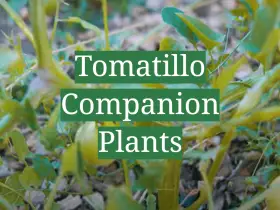


Leave a Reply
View Comments